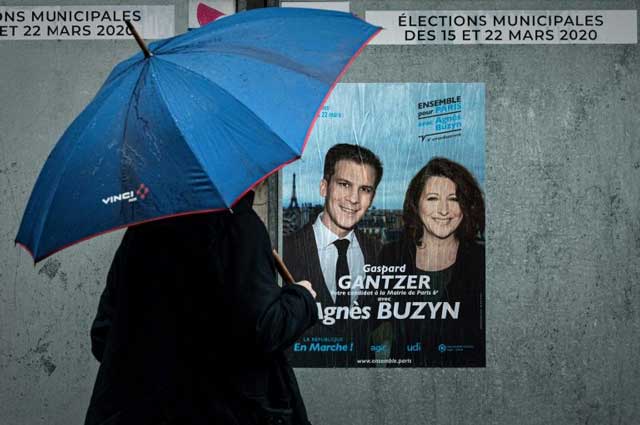
Paris, France | AFP | Despite its famed culture, food and romance, Paris can be rough going for residents contending with daily traffic congestion, smog, petty crime, sky-high rents and even rats.
When Parisians head to the ballot box to elect their mayor in the first round of France’s local elections next weekend, it will be with such daily life concerns in mind — party politics a distant second consideration.
“The city of Paris is brutal for its inhabitants, a city whose condition has deteriorated,” mayoral candidate Agnes Buzyn of President Emmanuel Macron’s Republic on the Move (LREM) party said ahead of the March 15 vote.
That will be followed by a second round a week later.
Buzyn is among a handful of leading candidates vying for the post of mayor, a prestigious post that helped propel former city chief Jacques Chirac to the presidency.
The vote takes place amid a coronavirus outbreak that has already killed a dozen and infected hundreds more on French soil, moving the government to ban mass gatherings.
An OpinionWay poll found almost a third of registered voters were “concerned” about the risk of infection at voting stations, but three-quarters said they were against postponing the election.
The Paris election will deal with “the concrete aspects of everyday life — transport, pollution, security… housing, and these are becoming more and more important,” political analyst Jean Garrigues told AFP.
– Safer city –
Politicians vying for control of the capital have served up a smorgasbord of proposals they say will deliver a cleaner, safer environment for the City of Light’s nearly 2.2 million residents.
There are visions to plant tens of thousands of trees, limit cars in favour of bikes, set up anti-pest brigades, and deploy armed police to deal with a rise in bag and cellphone-snatching in one of the world’s most visited cities and 2024 Olympics host.
“In the last two years, petty crime has increased a lot in the city of Paris, and so the question of security has become a very important issue in the campaign,” said Bruno Cautres, a political analyst at the Cevipof research centre.
Security is a focus of right-wing candidate Rachida Dati of the Republicans party who is proposing a municipal police force of 3,400 armed agents.
For the incumbent mayor, Socialist Anne Hidalgo, sanitation is a priority that will require a yearly one-billion euro ($1.13 billion) budget, while independent Cedric Villani wants to unleash an army of robots to do the dirty work.
Clean air, too, is a major concern in the densely populated city that issues pollution warnings on about 17 days every year.
On this score, Hidalgo proposes to transform 60,000 parking spaces into cycling lanes — a controversial plan in a city many complain is a perpetual building site.
As for housing, most candidates want to accommodate lower-income renters as the inner city leaks residents to the suburbs — Paris’s population fell 0.5 percent from 2011 to 2016.
“It is a city with few property owners, contrary to the rest of France. The owner/tenant division is a determining factor: owners are more inclined to vote for the right or for the LREM, and tenants for the left or the Greens,” said analyst Jerome Sainte-Marie of the PollingVox polling institute.
– ‘Protest vote’ –
Elections take place per neighbourhood, or arrondissement, where each mayoral contender presents a list of candidates to a municipal council which will in turn elect a mayor.
Most polls show Hidalgo leading the race, but with Dati fast narrowing the gap and the outcome likely to rest on alliances that form before the second round.
Macron’s LREM party suffered a setback when his chosen candidate, Benjamin Griveaux, pulled out over a sex tape scandal, causing Buzyn to be parachuted in from the health ministry.
But party support is split, with LREM member Villani opting to stand as an independent candidate after Macron chose Griveaux over him.
Garrigues expects voters will use the vote, at least in part, to castigate Macron, who won Paris with a resounding margin in 2017 presidential elections but has since lost popularity due to a perceived autocratic leadership style and lack of common touch.
“There will be a degree of protest vote against Emmanuel Macron… but I do not have the impression it will dominate the municipal elections,” said Cautres.
 The Independent Uganda: You get the Truth we Pay the Price
The Independent Uganda: You get the Truth we Pay the Price


